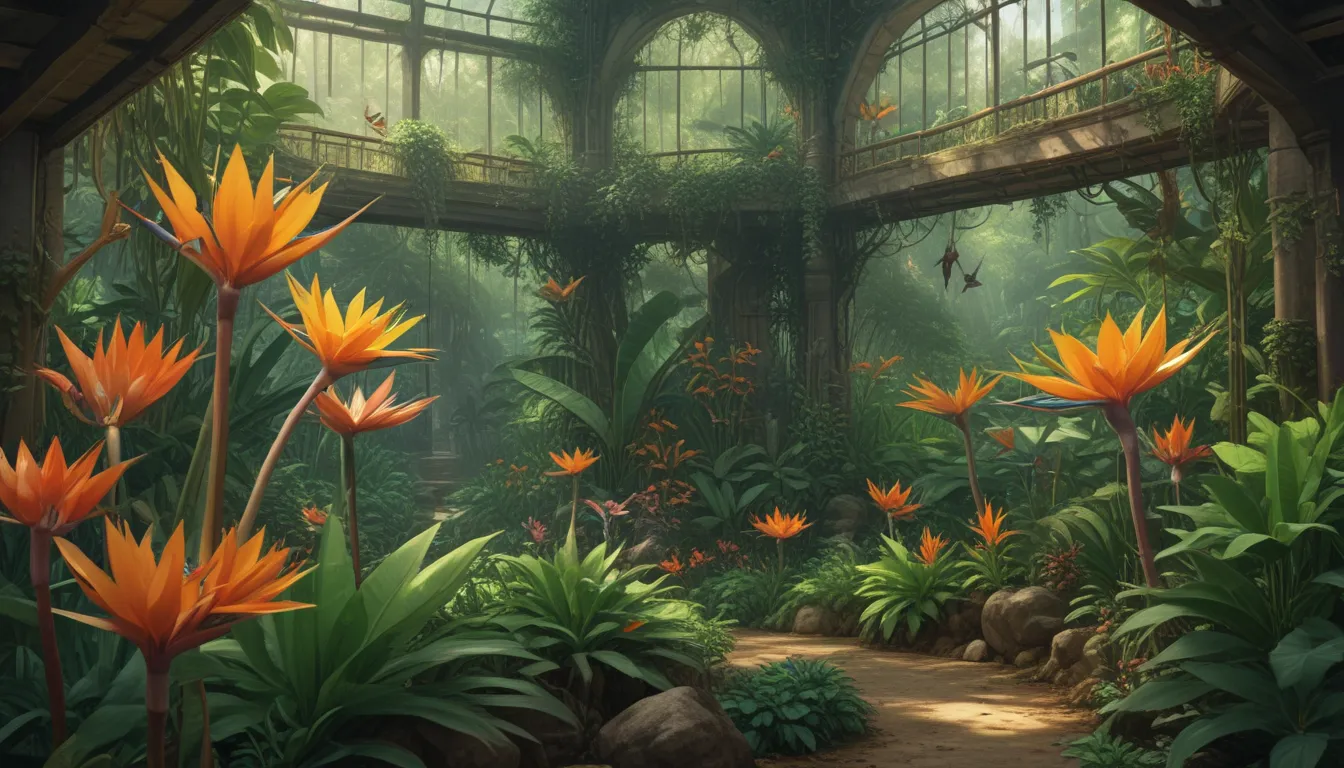The Ultimate Guide to Fertilizing Bird of Paradise Plants

Bird of paradise plants are a striking addition to any garden, with their vibrant blooms resembling a tropical bird in mid-flight. However, to maintain their beauty, it’s essential to fertilize them correctly. In this comprehensive guide, we will provide you with all the information you need to ensure your bird of paradise plants thrive.
Why Fertilize a Bird of Paradise?
Before delving into the specifics of fertilizing your bird of paradise, let’s understand why it’s crucial to provide them with the right nutrients.
Aesthetics
The stunning flowers and foliage of a bird of paradise come at a metabolic cost. These plants require an array of macro- and micronutrients to sustain their growth and maintain their visual appeal. Without proper nutrition, deficiency symptoms such as splitting, curling, and browning leaves can occur, detracting from the plant’s beauty.
Vigor
In addition to aesthetics, proper nutrition is essential for the plant’s vigor and growth. Malnutrition can lead to stunted development, as essential components necessary for cellular processes are lacking. By providing the necessary nutrients, you can ensure optimal growth and development of your bird of paradise plant.
Health
Nutrition plays a vital role in the plant’s ability to defend itself against pests and diseases. A well-fed plant is better equipped to cope with stressors and can ward off infestations and infections more effectively. By maintaining proper nutrition, you can enhance the overall health of your bird of paradise plant.
What You’ll Need
To fertilize your bird of paradise effectively, you’ll need a few essential items:
Humus
Humus, or organic material derived from decomposed plants and animals, is an excellent addition to the soil. It improves soil nutrition, water retention, structure, and cation exchange capacity (CEC). CEC refers to the soil’s ability to provide nutrients to plants, making it an essential factor in plant nutrition.
Types of humus that you can incorporate into your soil include peat moss, compost, and well-rotted manure. These organic materials enrich the soil and provide a rich source of nutrients for your bird of paradise plant.
Fertilizer
For targeted nutritional deficiencies, fertilizers are an invaluable resource. You can choose between organic and synthetic fertilizers, each offering unique benefits. Organic fertilizers contain natural materials such as kelp meal and bone meal, providing a balanced source of nutrients for your plants.
On the other hand, synthetic fertilizers offer readily available forms of nitrogen, phosphorus, and potassium. While they can provide essential nutrients, synthetic fertilizers may disrupt soil microorganisms and lead to imbalances. Organic fertilizers are often preferred for their holistic approach to plant nutrition.
Soil Test
To determine your soil’s nutritional status, a soil test is essential. Professional soil tests or DIY kits can help you understand your soil’s pH, nitrogen, phosphorus, and potassium levels. By analyzing your soil’s composition, you can make informed decisions about the nutrients your plant needs.
When and How to Feed Your Plants
When it comes to feeding your bird of paradise plants, timing and technique are crucial. Here’s how you can ensure your plants receive the nutrition they require:
Prior to Transplanting
Before transplanting a bird of paradise plant, work humus into the soil around the planting site. This will prepare the soil for optimal fertility and provide a nutrient-rich environment for the plant’s roots.
Established Plants
For established bird of paradise plants, you can either amend the soil with humus or apply supplemental fertilizer every three months during the growing season. By incorporating organic material or fertilizer into the root zone, you can ensure that your plants receive the necessary nutrients for healthy growth.
Fertilizer Options
When selecting a fertilizer, consider organic options such as Burpee’s granular plant food or synthetic options like Osmocote’s granular plant food. Organic fertilizers offer balanced nutrition and support soil health, while synthetic fertilizers provide readily available nutrients for rapid plant growth.
By following these guidelines and providing your bird of paradise plants with the nutrients they need, you can enjoy vibrant blooms and lush foliage throughout the growing season. Remember, a small sacrifice in fertilizing efforts can yield stunning results in your garden.
If you have any questions or insights about fertilizing bird of paradise plants, feel free to share them in the comments section below. Additionally, explore our other maintenance guides to keep your bird of paradise plants in optimal condition:
- How to Grow Bird of Paradise: a Stunning Easy-Care Perennial
- How to Grow Bird of Paradise Indoors
- How to Overwinter Bird of Paradise Plants
Fertilizing your bird of paradise plants is a rewarding task that will enhance the beauty of your garden. With the right nutrients and care, your plants will flourish and thrive year after year. Dive into the world of plant nutrition and watch your bird of paradise plants soar to new heights of beauty and vitality.





